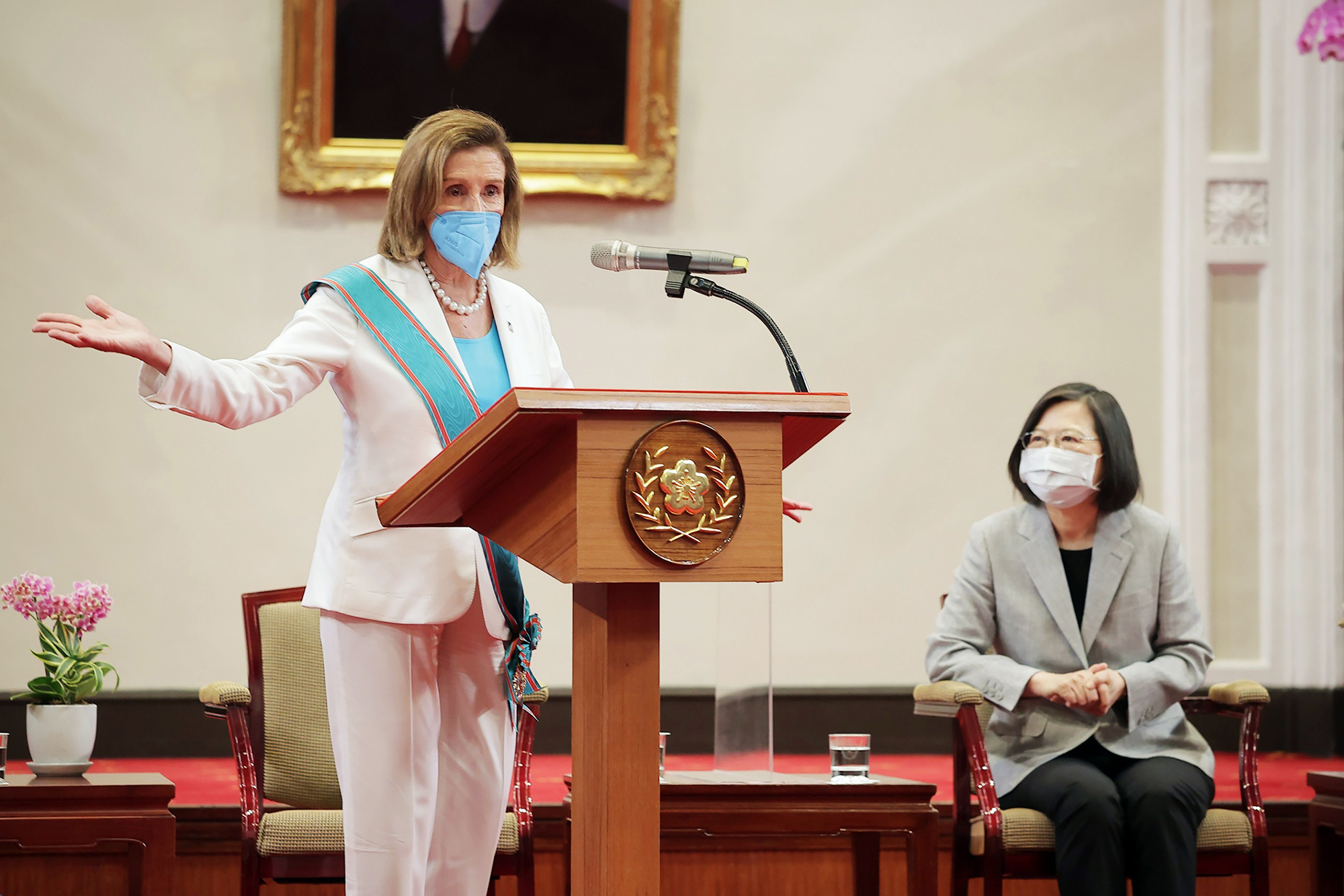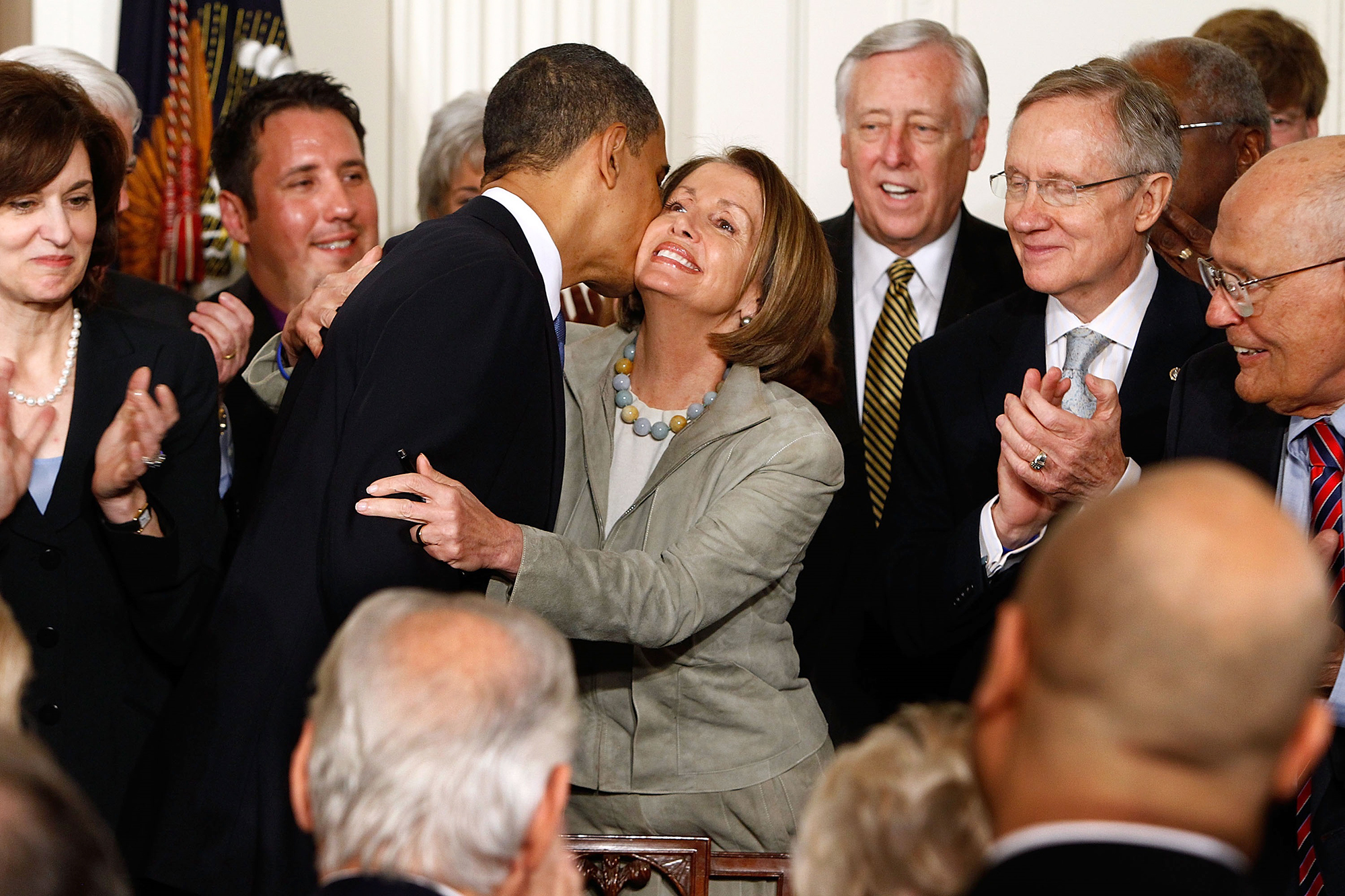Looking back at Nancy Pelosi's accomplishments and controversies during her House leadership
She has called the passage of Obamacare her "major" achievement.
House Speaker Nancy Pelosi announced Thursday that she would be stepping down from her leadership role in the next Congress after a historic, 19-year run as the first female and longest-serving head of the Democratic party in the chamber.
Despite not seeking reelection as speaker, Pelosi, 82, will still represent the California district she has served for 35 years, she said in a speech from the House floor.
Although Pelosi's tenure as a congresswoman is not yet over, much of her legacy may already be established, including major legislative wins and her share of challenges.
Accomplishments in the House
Throughout her decades in Congress, Pelosi, first elected in 1987, continuously broke barriers for women through her House leadership roles. She was voted the first female House minority whip in 2001, the first female minority leader in 2002 and first female speaker of the House in 2007.
With that last victory, Pelosi became the highest-ranking woman in U.S. history at the time, eclipsing Madeleine Albright, a secretary of state under former President Bill Clinton. In a rare comeback for the House, she reclaimed the gavel in 2019. In 2021, with the swearing-in of Vice President Kamala Harris, one other woman became closer to the presidency.

Pelosi and other Democrats, including Connecticut Sen. Chris Murphy, have been touting how she helped muscle the sweeping Affordable Care Act (ACA) through an uncertain, sometimes fractious caucus and against steep odds in 2010, during President Barack Obama's first term.
Appearing recently on ABC's "This Week," Pelosi told anchor George Stephanopoulos that the ACA was her "major accomplishment. I take great pride in that."
The Human Rights Campaign released a statement upon Pelosi's announcement. They noted her role in passing the ACA, also known as Obamacare, and called her "the definition of an ally." A release from the organization credited her for work to repeal "don't ask, don't tell," the policy which barred openly LGBTQ service members in the military, and her support for same-sex marriage.
Pelosi has a history of making strong statements on foreign policy. She whipped much of her party against an Iraq War resolution worked on by the administration of President George W. Bush -- even though her mentor, then-Minority Leader Dick Gephardt, helped craft it.
Pelosi would later call Bush's policy in the region a failure and the war itself "a grotesque mistake."
This year, she made headlines for visiting Taiwan despite warnings from the Chinese government, but Pelosi's public tensions with China date as far back as 1991. While visiting mainland China that year, she and two colleagues held a banner honoring victims of the 1989 Tiananmen Square massacre. They were soon chased from the spot.

Divisive moments
Pelosi's second speakership in 2019 came at a tense time. According to one biographer, she had considered retiring before Donald Trump defeated Democrat Hillary Clinton in the 2016 presidential election.
Instead, she has remained in Congress, sparring with Trump throughout his first and only term that spanned Trump's two impeachments, an attack on the U.S. Capitol and a State of the Union address that left Pelosi tearing up a paper copy of his speech.
At the same time, Pelosi -- who has long been one of the most public faces of the Democratic Party and a frequent GOP target -- faced some tensions within her own party. She squared off with a progressive group of young freshman representatives nicknamed "The Squad" over support for Israel and accusations that she was not liberal enough. One member of the group, New York Rep. Alexandria Ocasio-Cortez joined climate activists for a sit-in at Pelosi's office in 2018.
Amid the COVID-19 pandemic, Pelosi was among many public figures criticized for seemingly using her status to get preferential treatment. She got her hair styled inside a salon that was supposed to be closed for indoor appointments due to health restrictions.
As she steps down, Pelosi is looking to the future of her party.
"For me, the hour's come for a new generation to lead the Democratic caucus that I so deeply respect," she said on Thursday. "And I am grateful that so many are ready and willing to shoulder this awesome responsibility."



